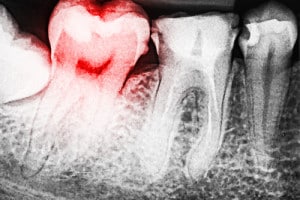 At some point, nearly all of us will experience the discomfort of a cavity. However, you may be surprised to learn how big an impact preventive dentistry can have in avoiding them. With the right steps, you can help avoid tooth decay and protect your smile from oral health complications.
At some point, nearly all of us will experience the discomfort of a cavity. However, you may be surprised to learn how big an impact preventive dentistry can have in avoiding them. With the right steps, you can help avoid tooth decay and protect your smile from oral health complications.
Frequently Asked Questions About Avoiding Tooth Decay
Question: What causes a cavity?
Answer: A cavity occurs when the tooth enamel becomes weakened or damaged. Bacteria can then bypass the protective layer of enamel and reach the more sensitive layers of dentin, causing a cavity to form. Enamel can become damaged as a result of injury or poor oral hygiene.
Question: How do I know I need treatment?
Answer: Often the first indicators of a problem are tooth sensitivity to hot or cold temperatures or a toothache. At this point, you will need the dentist to examine your smile to see if you need treatment. By having your teeth examined and cleaned twice a year, you increase the chances of decay being caught in the earliest stages.
Question: Does brushing and flossing help?
Answer: Yes. Brushing and flossing remove food particles and reduce the severity of plaque buildup. Otherwise, bacteria can break down food particles and cause severe plaque and tartar buildup, which weakens enamel and increases the risk of cavities forming. You should brush your teeth twice a day, once in the morning and again before going to bed. You should also floss every night before going to sleep as well.
Question: Should I have my teeth professionally cleaned?
Answer: Absolutely. While brushing and flossing can remove plaque, only a cleaning can remove hardened plaque (also known as tartar). You should have your teeth cleaned twice a year. If you have any questions about avoiding cavities, or if you would like to schedule a checkup and cleaning, then contact our office today.
